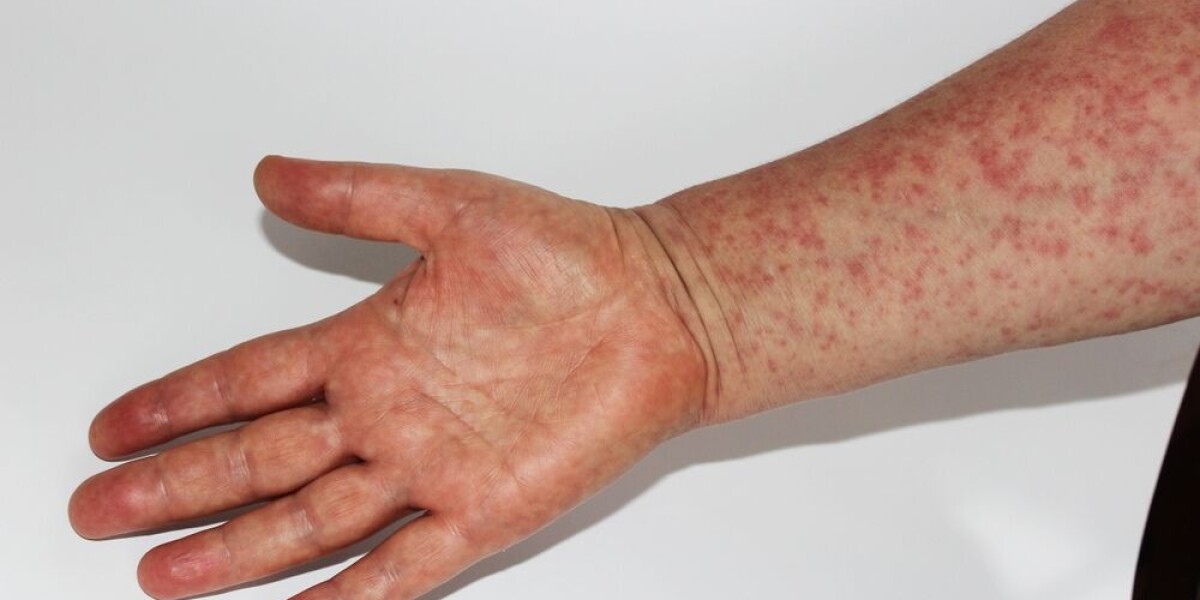
- Select a language for the TTS:
- UK English Female
- UK English Male
- US English Female
- US English Male
- Australian Female
- Australian Male
- Language selected: (auto detect) - EN
Play all audios:
Parents in France are being warned to be vigilant to the threat of measles, with several regions facing an outbreak. There have been 167 confirmed cases of the highly-infectious disease
since January 1, 2025, the Agence régionale de santé (ARS) states in a recent bulletin. Several other expected cases had not been confirmed by the time the information was published,
meaning the real figure is likely to be higher. This includes a particularly high number in the Hauts-de-France region, which had 46 confirmed cases. Authorities have warned doctors to
expect a rise in cases in the coming weeks and to take precautions to prevent an explosion of the disease. Health professionals are required to report any cases of measles to the authorities
to try and limit outbreaks. However, there are no policy changes for residents in the country. Those with children under the age of one, so not yet old enough to receive a vaccine, should
remain particularly vigilant. People with weakened immune symptoms should also be careful. A map showing the status of cases as of March 11, 2025, can be seen below. WHAT IS CAUSING THE
INCREASE? Seasonal measles outbreaks are common at the end of winter/beginning of spring as weakened immune systems caused by the cold weather lead to a natural increase in cases.
Authorities however report that this outbreak has seen several imported cases, notably from Morocco and Romania, increasing overall numbers. To date in 2025, 13 confirmed cases have been
traced back to Morocco, compared to 26 in all of 2024. Out of these confirmed cases, 11 have led to hospitalisation, with young children (under five) and teenagers particularly affected.
Morocco has seen over 6,000 confirmed cases of measles since September 2023, however the disease is being reported in increasing numbers in many countries across the world including the US
and Canada. International travellers are recommended by the ARS to ensure they are up to date with vaccinations, and take top-up jabs where necessary, particularly if travelling to Morocco.
This includes early vaccination for babies travelling to countries with a high measles rate. Read more: Carte Vitale is now available digitally across France - is it available to foreign
residents? HOW CAN MEASLES BE SPOTTED? Measles generally takes ten days to present symptoms after an infection, which can cause unsuspecting people to spread the disease unknowingly. The
first symptoms include: * Coughing * Tiredness * High fever (potentially reaching up to 40°C), * Runny nose * Conjunctivitis * Swollen eyelids, watery eyes or redness of eyes, and
discomfort at the sight of light Following this, a skin rash will appear, usually starting on a person’s face before moving down the body. Most primary symptoms may disappear at this point
but coughing and fatigue are likely to continue. In around 30% of cases, complications occur, ranging from ear or lung infections to inflammation of the brain. Serious complications can
lead to hospitalisation – including intensive care – or even death. VACCINE, ISOLATION: TIPS TO PREVENT SPREAD Vaccination is the best method for preventing a measles outbreak. MMR
(Measles, Mumps, and Rubella) vaccines are compulsory for all children in France born after January 1, 2018. Two doses are given – one when the baby turns one, and another at 16 - 18 months
old. Those born since 1980 are also recommended to have the vaccine if they did not when they were young. Vaccination rates for the 18 - 35 age group are around 90%, lower than the
government’s 95% target. Otherwise, if you or anyone in your family presents any of the symptoms above, you should isolate them as much as possible, for up to five days. Frequently airing
your home, wearing a face mask, and washing your hands/keeping up with hygiene is recommended to limit the spread. It is important to inform people before coming into contact with them that
you have been exposed to the virus, to ensure they can avoid being infected or are already vaccinated against it. A meningitis vaccination campaign is also underway in some areas of France
following a rise in cases among young people. Read more: Who is affected by France’s latest meningitis vaccination campaign?






